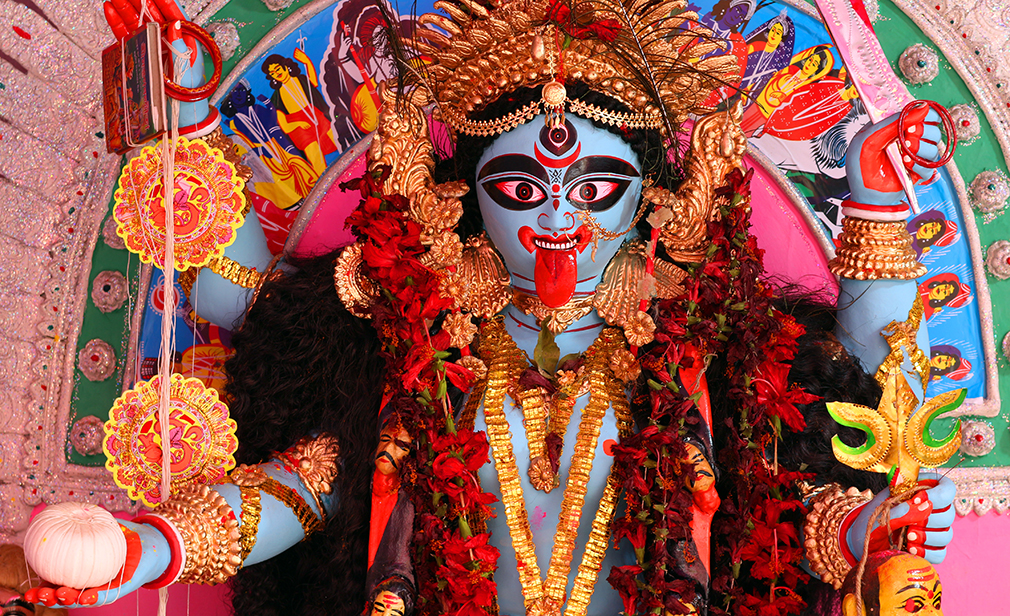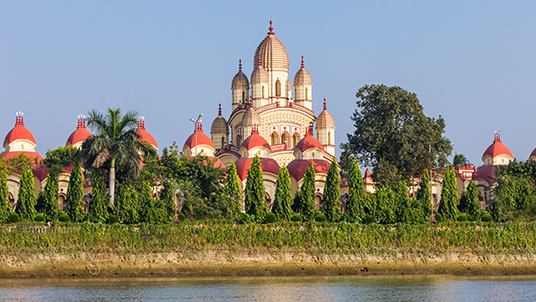A festival of legends and tradition
The roots of Kali Puja lie in the triumph of good over evil. As per legend, the demons Shambhu and Nishambhu wreaked havoc in the world, even defeating the gods in their wake. Desperate for salvation, the gods sought the aid of goddess Durga, who, in a divine act, created Kali to annihilate the menacing demons. In a fierce battle, Kali emerged victorious, vanquishing the evil forces and restoring harmony to the world. Born from the brow of goddess Durga during this epic confrontation, Kali became known as Kal Bhoi Nashini, symbolising the destroyer of evil.
Another legend has it that Goddess Kali, consumed by her fury on the battlefield, was wreaking havoc beyond measure. The gods beseeched Lord Shiva to intervene and stop her. Lord Shiva approached Kali not with aggression but with a calm demeanour. However, Goddess Kali's relentless energy overpowered even Shiva, who, in a selfless act, lay beneath her feet. At this moment, Kali realised the extent of her actions and halted her rampage. This powerful narrative is immortalised in the iconic image of Kali with her foot on Shiva's chest, her tongue stuck out in astonishment.
A festival of rituals and revelry
Kali Puja is a spectacle that captivates the senses, and its celebration is a harmonious blend of devotion and festivity. The rituals and customs that define this enchanting festival include:
Beautiful decorations: Community grounds are transformed into colourful canvases adorned with Kali idols, podiums, and intricate flower decorations. The beautiful colours and artistic expressions create an atmosphere of reverence and joy.
Prayers on Amavasya: Devotees offer their prayers to the formidable goddess Kali. These rituals take place during the Hindu month of Kartik, on Amavasya, the new moon night, with midnight being the sacred hour when the new moon prevails.
Tantra puja: Kali is worshipped with tantric rites and mantras, adding an aura of mysticism to the festivities.
Offerings to the Goddess: Devotees present offerings of red hibiscus flowers, sweets, rice, lentils, fish, and meat to the goddess Kali. After prayers, worshippers receive Prasad, a sacred offering that typically includes Khichdi, Labra, and various vegetables.
Meditation at night: It is believed that worshippers should engage in meditation throughout the night until the break of dawn, deepening their connection with the divine.
Idol Immersion: The grand finale of Kali Puja culminates with the immersion of Kali idols in rivers or other water bodies, symbolising the goddess's return to her divine abode.




































